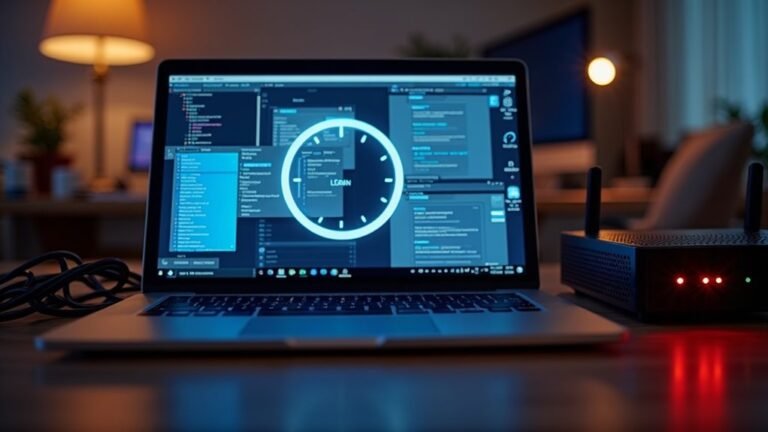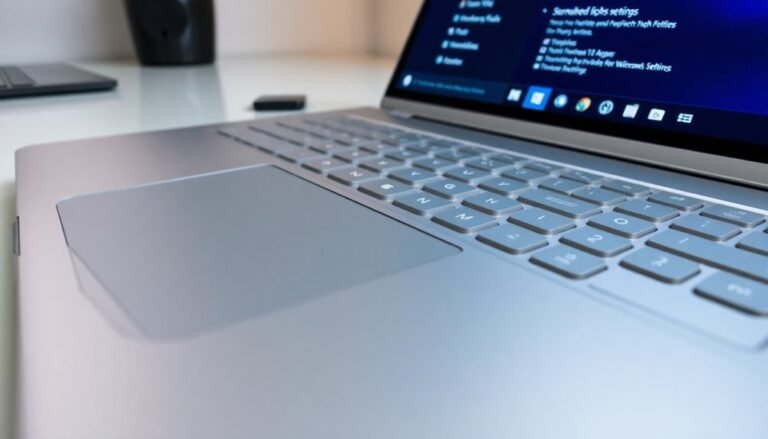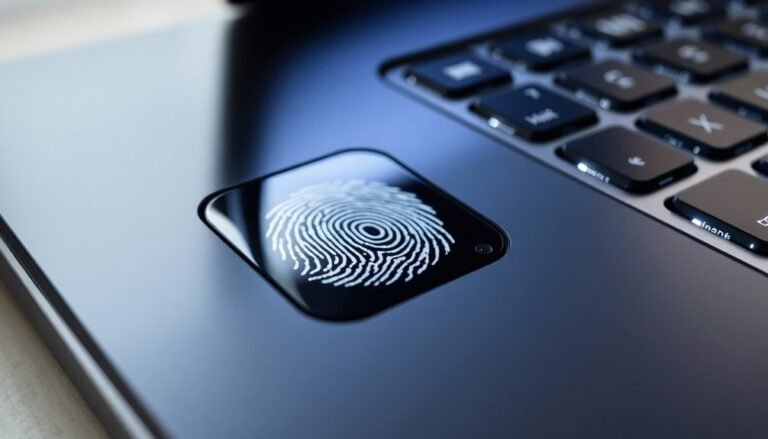Laptop Not Responding Windows 11: Fix Laptop-Specific Freeze Issues
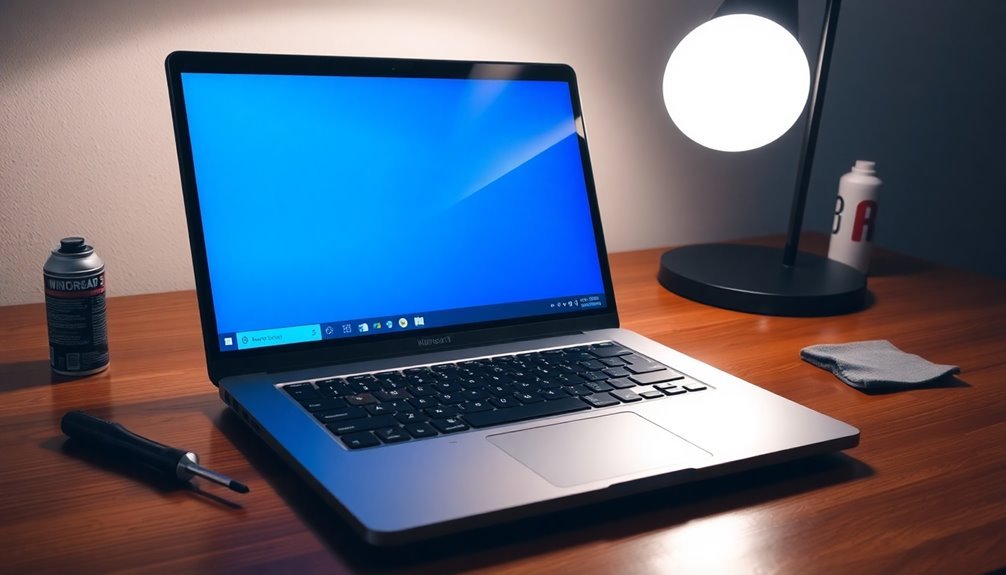
If your laptop is unresponsive on Windows 11, several factors may be at play, including overheating, faulty hardware, or driver issues. Start by utilizing the built-in troubleshooters in Windows and ensure your system is up to date.
Next, examine your hardware for potential problems, such as defective RAM or an aging hard drive. Regular maintenance, such as removing dust from vents and optimizing startup programs, can help prevent freezing issues.
If these steps do not resolve the problem, consider exploring more advanced troubleshooting methods.
Common Causes of Laptop Freezing on Windows 11
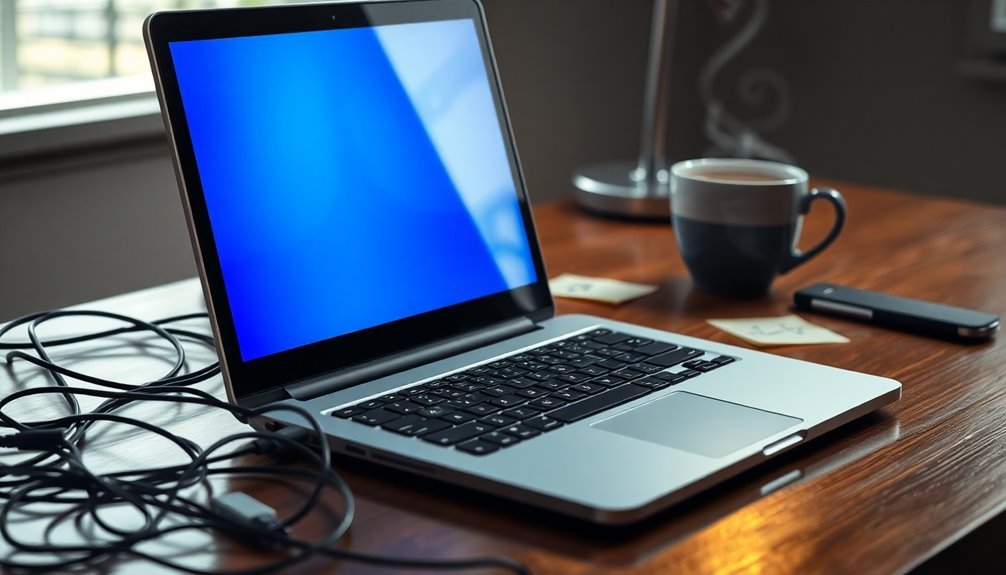
If you’re experiencing laptop freezing on Windows 11, it can be an extremely frustrating issue, especially during critical tasks. There are several common causes that could lead to this problem.
One major culprit is faulty or aging hard drives, which can create read/write errors that necessitate either repair or replacement. Insufficient RAM also plays a significant role, as it can limit your laptop’s performance, particularly during heavy workloads. Additionally, keeping the operating system updated can mitigate some performance issues related to freezing.
Overheating is another factor to consider, which can result from dust accumulation or inadequate ventilation, ultimately affecting system stability. Power supply issues, such as voltage surges, can also disrupt normal hardware operation.
Additionally, driver conflicts—especially after system updates—may result in freezes when incompatible software attempts to run.
Another critical point is insufficient disk space, which can overload your system and hinder responsiveness. Lastly, malware infections can monopolize system resources, leading to persistent hangs and slow performance.
Essential Troubleshooting Steps for Unresponsive Laptops
If your laptop becomes unresponsive, knowing the essential troubleshooting steps can save you time and frustration. Start by utilizing the built-in troubleshooters in Windows 11. Navigate to Settings > System > Troubleshoot > Other troubleshooters, where the automated wizards can help detect and fix common issues like app errors and performance problems.
Next, enhance your laptop’s performance by applying system file repair utilities. Use the System File Checker and DISM commands in an elevated Command Prompt to repair any corrupted Windows files that may be causing your laptop to freeze. Running Windows Update can also help resolve various issues by applying necessary security patches and bug fixes.
If issues continue, consider accessing advanced startup options. Hold the Shift key while selecting Restart to enter Safe Mode or initiate a startup repair, which can resolve deeper issues. Additionally, don’t overlook the importance of keeping Windows and your device drivers updated. Regular updates can address bugs that often lead to system freezes.
Lastly, if nothing else works, you can perform a power cycle by pressing and holding the power button for 10 seconds. This simple action often resolves temporary glitches and gets your laptop back on track quickly.
Hardware-Related Issues That May Cause Freezing
While software issues are commonly known to cause freezing, hardware-related problems can be just as detrimental to your Windows 11 laptop’s performance. One prevalent issue is faulty RAM. Whether it’s due to defective memory modules or insufficient capacity, problematic RAM can lead to system instability and unexpected freezes.
Another major concern is overheating, which often arises from blocked air vents or malfunctioning fans. This can result in thermal shutdowns, severely impacting your laptop’s usability.
Storage device failures are also critical; failing SSDs or HDDs can cause slow read/write operations and freezing during disk access, disrupting your workflow.
Additionally, unstable power supplies—often caused by a failing battery or faulty charger—can lead to voltage fluctuations, resulting in random system freezes.
Lastly, issues with graphics hardware, including outdated drivers or overheating GPUs, can lead to complete system unresponsiveness.
Identifying and resolving these hardware-related issues is crucial for restoring your laptop’s performance and minimizing freezing interruptions.
Make sure to regularly check your hardware components to ensure a smooth computing experience on Windows 11.
System Maintenance Tips to Prevent Freezing
To ensure your Windows 11 laptop operates smoothly and avoids freezing issues, implementing regular system maintenance is crucial.
Follow these effective tips to enhance your laptop’s performance and reliability:
- Promptly Install Updates: Keep your system secure and up-to-date by enabling automatic updates. This ensures you receive the latest security patches and performance improvements.
- Run Disk Cleanup Regularly: Schedule weekly disk cleanup sessions to remove temporary and junk files, freeing up valuable storage space and optimizing your laptop’s speed.
- Perform Malware Scans: Protect your laptop from potential threats by executing full malware scans at least once a month using reputable antivirus software.
- Optimize Startup Programs: Improve your laptop’s boot time and overall responsiveness by disabling unnecessary startup applications that may slow down your system.
- Monitor System Health: Regularly check your laptop’s temperatures and clean air vents to mitigate overheating issues, which can lead to performance slowdowns and freezing.
By following these maintenance tips, you can significantly enhance your Windows 11 laptop’s performance and minimize the risk of freezing.
Stay proactive to keep your device running smoothly!
Advanced Solutions for Persistent Freezing Problems
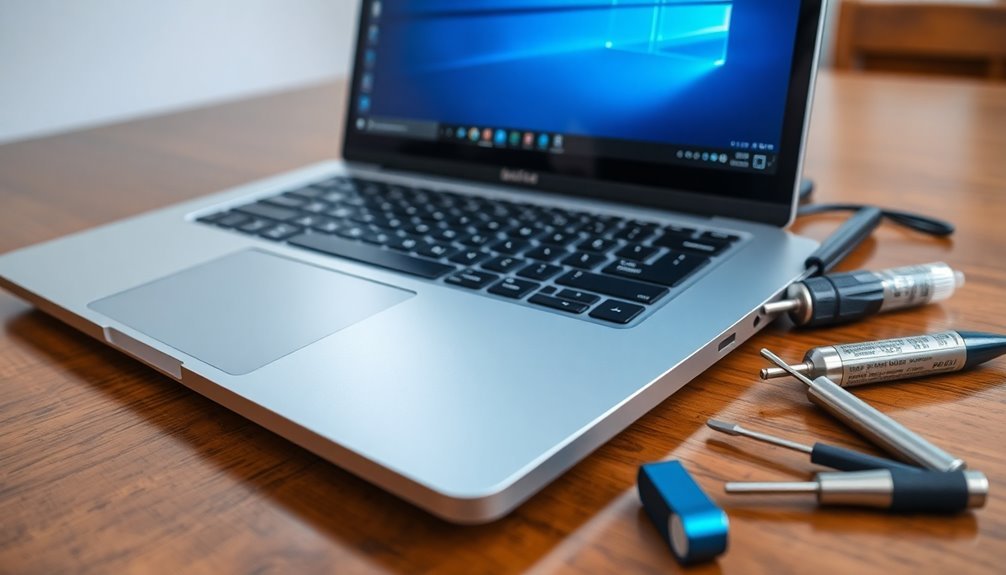
Solving Persistent Freezing Issues on Windows 11 Laptops: A Comprehensive Guide
If your Windows 11 laptop is experiencing persistent freezing problems, even with regular maintenance, you’re not alone. Follow these expert tips to troubleshoot and resolve the issue effectively.
1. Update Your BIOS and Drivers:
Start by visiting your manufacturer’s website to update your BIOS and chipset drivers. Outdated drivers can cause compatibility issues that lead to system freezes.
Furthermore, don’t forget to check for firmware updates for critical components such as SSD controllers.
2. Disable Fast Startup:
Enhancing stability can often be achieved by disabling “Fast Startup.” This option can be found in your BIOS settings or in the power settings of Windows 11.
Disabling it may help prevent software conflicts related to startup processes.
3. Keep Your GPU Drivers Updated:
Ensure that your GPU drivers are current. Additionally, you might want to turn off hardware-accelerated GPU scheduling in Windows Display settings, as this can help reduce freezing issues related to graphics performance.
4. Run Diagnostics:
To detect and fix potential problems, utilize Windows built-in tools.
Run Windows Startup Repair to resolve boot issues, and use the System File Checker (SFC) to repair corrupted files.
For memory-related issues, launch the Windows Memory Diagnostic tool, and for hard drive errors, run the chkdsk command.
5. Perform Advanced Troubleshooting:
If your laptop continues to freeze despite taking the above steps, consider performing a clean install of Windows 11 or using System Restore to revert your system to a previous stable state.
Frequently Asked Questions
Can Background Applications Cause My Laptop to Freeze?
Yes, background applications can cause your laptop to freeze. They consume CPU and RAM resources, creating contention that affects performance. Monitoring and managing these processes can help prevent freezing and improve overall system responsiveness.
How Can I Check if My Laptop Is Overheating?
About 90% of laptop users experience overheating at some point. To check if yours is overheating, monitor temperatures with software like HWInfo, verify vents aren’t blocked, and listen for unusual fan noise. Keep it cool!
Is There Software to Help Monitor Laptop Performance?
Yes, you can use built-in tools like Task Manager and Resource Monitor, as well as third-party software for detailed performance tracking, alerts, and optimizations. These help you monitor CPU, memory, and overall system health efficiently.
Will Resetting Windows 11 Erase My Files?
Resetting Windows 11 can feel like hitting a reset button on your life. If you choose “Keep my files,” your personal data stays, but “Remove everything” will wipe your files clean—so back them up first!
How Often Should I Update My Laptop Drivers?
You should update your laptop drivers every 3-6 months if no issues arise. When problems occur, or for critical updates, check more frequently through Windows Update or your manufacturer’s website for tailored solutions.
Conclusion
To sum up, tackling laptop freezes on Windows 11 doesn’t have to feel like maneuvering through a maze. By exploring common causes, following essential troubleshooting steps, and keeping up with system maintenance, you can breathe new life into your device. If freezing persists, don’t hesitate to plunge into advanced solutions. Remember, with a little patience and persistence, you’ll turn your stubborn laptop back into a reliable companion, ready to tackle whatever tasks you throw its way!

